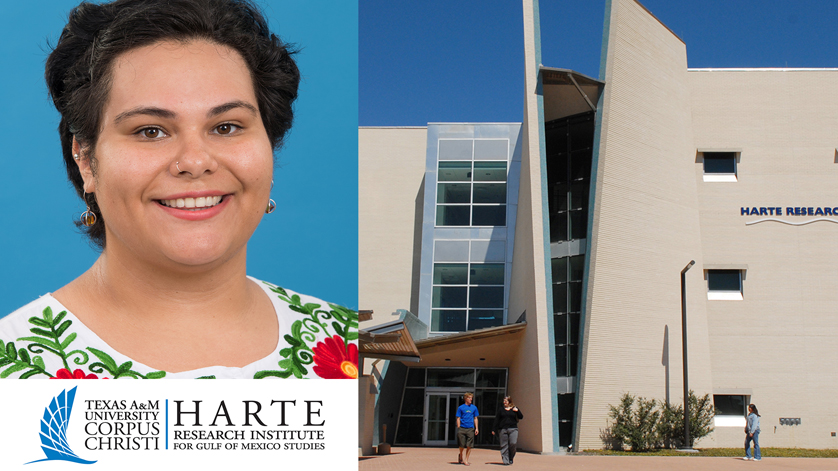Harte Research Institute Plans First International Student Workshop in Cuba

Though three nations share the Gulf of Mexico, the environmental problems it faces spans multiple borders. To encourage international collaboration in the next generation of Gulf marine researchers tackling these issues, the Harte Research Institute for Gulf of Mexico Studies (HRI) at Texas A&M University-Corpus Christi will host its Furgason Fellowship International Student Workshop this November, in Havana and Maria La Gorda, Cuba for the first time.
HRI has selected 18 graduate students from institutions in Mexico, Cuba and the United States to participate. Student participation is being funded through the Furgason Fellowship Endowment. Coral Lozada, HRI doctoral student and Island University alumnae, is one of the six highly-qualified students chosen to represent the United States.
“I am ecstatic about this amazing opportunity to work with students from Mexico and Cuba on themes that I was very deeply involved in while I was in the Peace Corps,” said Lozada “Since I am just starting my Ph.D., it will also be a great exercise in framing what will be my dissertation ‘research question.’ This semester will definitely include a series of ‘pinch me’ moments as November draws nearer!”
The workshop will focus on emerging issues surrounding tourism and environmental protection, an area where Lozada has unique experience. She is a graduate of the Master’s International program at Texas A&M-Corpus Christi. This unique program gave Lozada the opportunity to join the Peace Corps, while working on her Master’s of Science in Fisheries and Mariculture, where she spent 24 months developing an environmental outreach program for the Marieta Islands National Park located in Mexico. The park is now struggling to adapt to the pressures of growing international tourism from the United States due to its location in a marine protected area that exempts it from hunting and fishing.
A similar situation is unfolding in Cuba, as changes in U.S. travel restrictions are expected to bring new waves of visitors, putting increased pressure on the industry and environment. Lozada said her experiences witnessing how increased tourism could challenge environments and change communities along the Pacific Coast of Mexico is what piqued her interested in similar situations found in the Gulf.
“I’m excited to meet with the Mexican and Cuban students to discuss how they see the impacts of tourism and how it affects not just coastal communities but the ecosystems they thrive on,” Lozada said. “I think it will be a great starting point for many future collaborations to learn about their experiences and points-of-view.”
During the first part of the trip, students will have the opportunity to participate in the Gulf of Mexico Health+ Trinational Workshop to engage with international experts in marine and coastal research. They will then travel to the Guanahacabibes National Park and UNESCO Biosphere, in Pinar del Rio, Cuba, to get hands-on experience exploring the potential impacts associated with marine protected areas, sea turtle conservation, marine debris, diving and cruise tourism industry and other environmental impacts.
“While the students will bring a fresh perspective, aiding Cuba in finding solutions to these challenges, the goal is to cultivate personal and professional friendships between young scientists in hopes that they will continue to collaborate,” said Dr. Richard McLaughlin, HRI Chair for Marine Policy and Law.
HRI has a longstanding relationship with Cuban marine scientists and was a founding participant in the Trinational Initiative. Originally, a historic meeting organized with the goal of establishing a framework for collaboration between Cuba, Mexico and the United States for ongoing joint marine scientific research and to develop a regional plan of action designed to preserve and protect shared waters and marine habitats.
The Cuban workshop is the third in the Trinational series, with previous sessions held at A&M-Corpus Christi and in Veracruz, Mexico. McLaughlin said a third workshop was always planned for Cuba, but administrative and bureaucratic challenges made it too difficult to coordinate. With normalizing relations between the U.S. and Cuba easing travel restrictions, McLaughlin said the workshop was able to resume and tackle emerging environmental challenges in Cuba. McLaughlin is coordinating the workshop with Victoria Ramenzoni, HRI Assistant Research Scientist.
About the Harte Research Institute: The Harte Research Institute for Gulf of Mexico Studies, an endowed research component of Texas A&M University-Corpus Christi is dedicated to advancing the long-term sustainable use and conservation of the Gulf of Mexico. HRI provides international leadership in generating and disseminating knowledge about the Gulf of Mexico ecosystem and its critical role in the economies of the North American region.
About Texas A&M University-Corpus Christi: Offering more than 80 of the most popular degree programs in the state, Texas A&M-Corpus Christi has proudly provided a solid academic reputation, renowned faculty, and highly rated degree programs since 1947. The Island University has earned its spot as the premier, urban doctoral-granting institution in South Texas, supporting a UAS test site, two institutes and more than 20 research centers and labs. Discover your island here.

